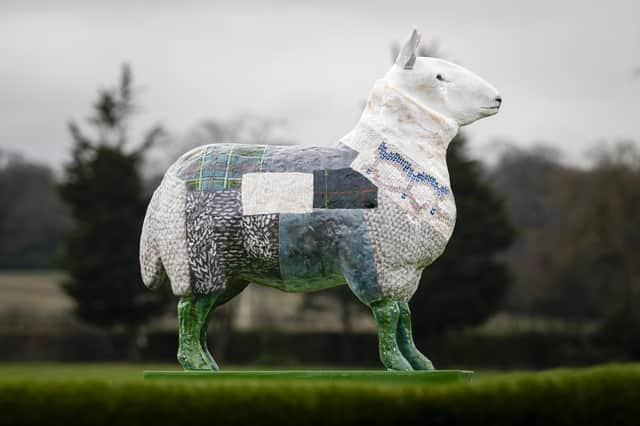Meet the Flockers: a look ahead to a sustainable future


The Golden Shears World Sheep Shearing & Woolhandling Championships is returning to the Royal Highland Show in June after 20 years.
Held in the MacRobert Theatre, more than 35 countries from across the world will battle it out to see who is the fastest sheep shearer and who has the best woolhandling technique.
The highly-anticipated event will feature 39 decorated sheep sculptures that are currently on tour across Scotland in the Flock to the Show public art trail.
The Scotsman is the media partner for both events and the Royal Highland Show is held from 22 to 25 June.
Visit the website at royalhighlandshow.org
Meet the artist
Living and working in rural Aberdeenshire Michelle Mann is particularly inspired by rural life and the outdoors.
She lives with her partner, and son, and works from a home studio while juggling farm and family life.
She is a self-taught artist, working primarily in pastels and watercolour, to produce lifelike artwork of livestock, pets, and wildlife, aiming to create lively images full of character and likeness to the subject. Michelle says: “The Woolly Back’s design is inspired by the many uses of wool, from tweeds and tartans to knitted garments and woven blankets.
“Wool from the sheep was once highly valued and would pay the rent on the farm, whereas in recent years the price for the wool doesn’t even cover the cost of shearing and so is done purely for the welfare of the sheep.
“Wool crafts are a part of rural life in Scotland and, although now underused due to modern textiles, wool has so many incredible properties.”
The Woolly Back
The Woolly Back by Michelle Mann highlights sustainable agriculture.
Over the last 200 years, Scottish farmers have promoted sustainability through a number of practices, including crop rotation, conservation tillage, agroforestry, improved livestock management, and renewable energy.
Farmers have long used crop rotation to maintain soil fertility. Low-till and no-till practices help reduce soil erosion, improve water retention, and sequester carbon in the soil.
Incorporating trees into farming landscapes provides a range of benefits, including increased biodiversity, carbon sequestration, and improved soil health.
The organic farming movement has gained traction, with many farmers adopting reduced pesticide and fertiliser use.
They have improved livestock management, reducing overgrazing and rotating grazing to promote soil health and reduce greenhouse gas emissions.
Meet the sponsor
The MacRobert Trust performs three roles – a dynamic charity, owner of an historic legacy, and forward-thinking landlord with a large and vibrant estate to manage.
Since it began 80 years ago, the trust has donated millions of pounds to charitable organisations, created a variety of prizes, awards, traineeships and endowments, and paid for building works across the country.
It has a long relationship with the RHS which encompasses many prizes, the MacRobert Theatre (venue for the Golden Shears) and, until recently, the MacRobert Pavilion.
The MacRobert Trust said: “Agriculture, farming and rural skills have been all too easily forgotten and we should take every opportunity to remind everyone where their food comes from and what it takes to produce it.”
Find your fleece
Locate today’s sheep and access our VIP competition to win free parking, hospitality, and lots more by following this link.